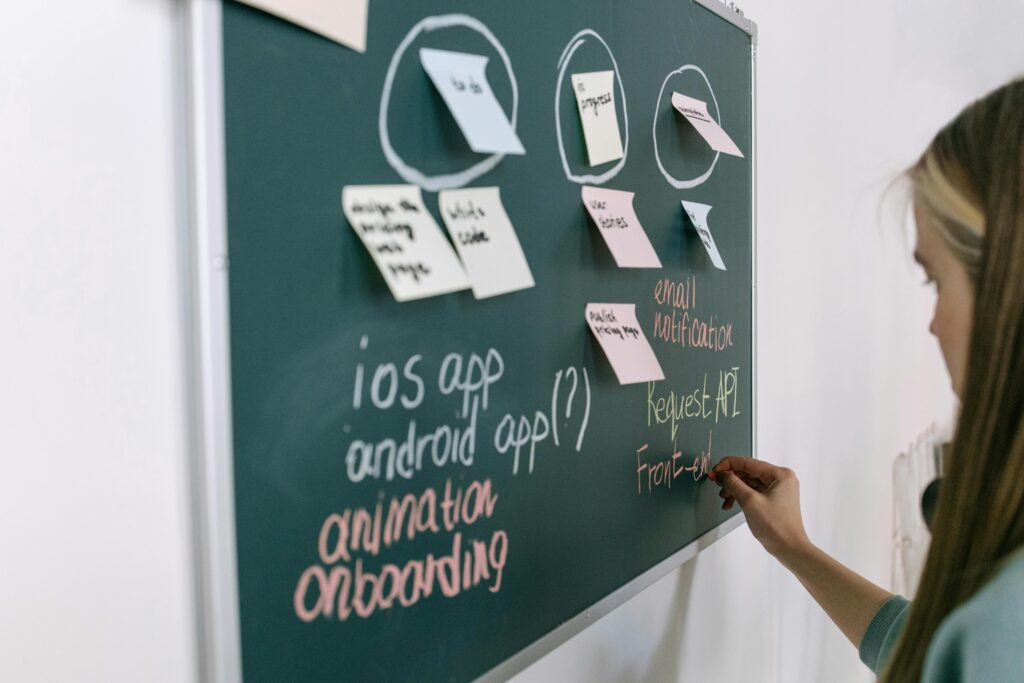Choosing between Android and iOS development is a critical decision that can significantly impact your career, business, or project. Both platforms have distinct advantages and challenges, and the right choice depends on factors such as target audience, development complexity, revenue potential, and personal preference. This comprehensive guide will explore every aspect of Android and iOS development in extreme detail, providing you with the insights needed to make an informed decision.

1. Market Share and Audience Demographics
Understanding the market share and user demographics of Android and iOS is essential for determining which platform aligns with your goals.
Global Market Share Breakdown
- Android: Approximately 70-72% of the global smartphone market
- iOS: Around 27-28% of the global smartphone market
Android’s dominance comes from its availability across a wide range of devices, from budget smartphones to premium flagships. iOS, while having a smaller market share, is concentrated in high-income regions where users spend more on apps.
Regional Differences in User Base
- Android: More popular in emerging markets (India, Brazil, Indonesia, Africa) due to affordable devices.
- iOS: Strong presence in North America, Western Europe, Australia, and Japan, where users have higher disposable income.
User Behavior and Spending Habits
- Android users tend to engage more with free apps and ad-supported content.
- iOS users spend nearly twice as much on apps and in-app purchases, making them more valuable for premium and subscription-based apps.
Key Takeaway: If your goal is mass adoption in cost-sensitive markets, Android is the better choice. If you prioritize revenue from paid apps or in-app purchases, iOS may be more profitable.
2. Development Environment and Tools
The tools and programming languages used for Android and iOS development differ significantly, affecting the learning curve, development speed, and overall experience.
Android Development: Kotlin vs. Java
Google officially recommends Kotlin as the preferred language for Android development, though Java is still widely used.
Key Features of Kotlin
- Modern, concise, and interoperable with Java.
- Reduces boilerplate code, making development faster.
- Strong null safety features to prevent crashes.
Android Studio: The Official IDE
- Built on IntelliJ IDEA, offering powerful code completion and debugging.
- Includes an emulator for testing apps on different virtual devices.
- Supports Jetpack libraries for faster development.
Challenges in Android Development
- Fragmentation: Developers must account for thousands of different devices with varying screen sizes, hardware capabilities, and OS versions.
- Slower updates: Many Android users don’t update to the latest OS immediately, requiring backward compatibility.
iOS Development: Swift vs. Objective-C
Apple’s primary language is Swift, though some legacy apps still use Objective-C.
Key Features of Swift
- Clean, expressive syntax that’s easier to read and write.
- Faster performance compared to Objective-C.
- Strong type safety and memory management.
Xcode: The Official IDE
- Exclusive to macOS, meaning you need a Mac for iOS development.
- Includes Interface Builder for designing UIs visually.
- Built-in SwiftUI for declarative app development.
Advantages of iOS Development
- Less fragmentation: Fewer devices and OS versions to support.
- Faster adoption of new OS updates: Over 90% of iOS users upgrade within a year.
Key Takeaway: If you prefer a more controlled ecosystem with less fragmentation, iOS is easier. If you enjoy flexibility and customization, Android offers more freedom.
3. App Store vs. Google Play: Publishing and Policies
Publishing an app on Google Play and the Apple App Store involves different processes, fees, and guidelines.
Google Play Store
- Submission Process: Typically takes a few hours to a day for approval.
- Developer Fee: One-time $25 registration fee.
- Content Policies: More lenient, leading to a higher volume of apps (including low-quality ones).
- Fragmentation Challenges: Must test on multiple devices due to varying hardware.
Apple App Store
- Submission Process: Strict review process (can take days or weeks).
- Developer Fee: $99 annual fee.
- Content Policies: Rigorous design and functionality checks.
- Higher Quality Standards: Results in fewer but more polished apps.
Key Takeaway: If you want a faster, cheaper publishing process, Google Play is better. If you prioritize a premium store with higher user trust, the App Store is ideal.
4. Development Costs and Maintenance
Budget considerations are crucial when choosing between Android and iOS.
Android Development Costs
- Higher testing costs due to device fragmentation.
- Longer development cycles because of compatibility requirements.
- More devices to optimize for, increasing QA time.
iOS Development Costs
- Lower testing costs (fewer devices and OS versions).
- Faster development due to standardized hardware.
- Higher upfront cost (requires a Mac).
Key Takeaway: iOS is generally cheaper to maintain long-term, while Android requires more resources for optimization.
5. Revenue Models and Monetization
The way apps generate revenue differs between platforms.
Android Monetization Strategies
- Ad-supported apps (Google AdMob, in-app ads).
- Freemium models (free with in-app purchases).
- Lower average revenue per user (ARPU) compared to iOS.
iOS Monetization Strategies
- Paid apps (users are more willing to pay upfront).
- Subscriptions (higher retention rates).
- Higher ARPU due to affluent user base.
Key Takeaway: iOS generates more revenue per user, while Android relies on volume.
6. Which Platform Should You Choose?
Choose Android If:
✔ You want a larger global audience.
✔ Your target market uses budget smartphones.
✔ You prefer an open ecosystem.
Choose iOS If:
✔ You prioritize revenue over downloads.
✔ Your audience is in high-income countries.
✔ You want a streamlined development process.
FAQ
1. Can I develop for both Android and iOS?
Yes, using cross-platform frameworks like Flutter, React Native, or Xamarin.
2. Which is easier to learn, Android or iOS?
iOS (Swift) is often considered more beginner-friendly.
3. Which platform makes more money?
iOS has higher revenue per user, but Android can generate more overall with ads.
4. How long does app approval take?
Google Play: Hours to a day.
App Store: Days to weeks.
5. Do I need a Mac for iOS development?
Yes, Xcode only runs on macOS.

